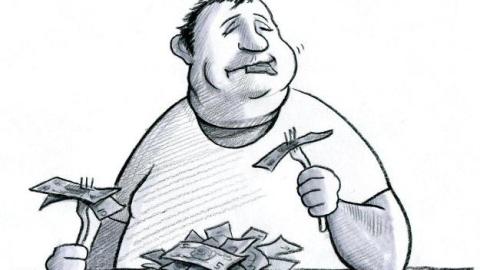Are People Prudent?

Preferences often differ from prudent interests, and economics, business, and politics address (and regulate) imprudent choices differently:
1. Are American’s prudent? 69% eat imprudently, and 75% don’t save enough.
2. Economists mostly assume “rational” preferences, but businesses, knowing “there’s one born every minute,” regularly manipulate preferences towards profitable imprudence.
3. In politics we limit preferences, even of the majority, when collectively imprudent (e.g. interracial marriage, legalized in 1967, wasn’t majority preferred till ~ 1995).
4. Precaution vs. post-caution: Regulations ideally represent imprudence-reducing precautions; lawsuits are post-cautions. Isn’t prevention preferable to cure?
5. Some regulations should create socially useful “inefficiencies” e.g. requiring safety features, or including costs that both sides of transactions have incentives to disregard. If “efficiency” is the only goal, why not permit voluntary child labor (like this deadly silo cleaning)?
6. Regulation resisters have three kinds of motives: principled, easier-for-me, and exploitative.
7. Resisters-on-principle are freedom lovers. But should we be free to choose which side of the road to drive on? Some limits, like “rules of the road,” effectively enhance freedom, and abstract “freedom” must work with other goals, like safety.
8. Easier-for-me resisters want to avoid inconveniences. But they’re often blind to their own imprudence. Regulations can protect them (and us) from themselves.
9. Exploiters seek profit in laxer rules (e.g. lower pollution fixing costs). Regulations help deter and punish exploiters who are tempted by bad deeds, just as laws do with would-be criminals. Even if few are exploiters, easier-for-me resisters can abet them.
10. By all means, eliminate regulations that don’t advance civic goals. But don’t promote imprudence or abet the unscrupulous. Regulations aren’t about the good guys (though their absence can push good guys into race-to-the-bottom competitions against malefactors). Calling regulations burdensome, or dumb, or corrupt is an argument for better management of regulators, not for abandoning what only regulations can do.
11. Markets coordinate billions of actions and can do much more harm than individuals ever could. Freer markets might work better if people were prudent. But many evidently aren’t. And the prudent can’t quarantine those who aren’t: Markets can aggregate and amplify imprudence to affect everybody (e.g. treating obesity-related diseases increases everyone’s medical insurance costs). We don’t need “less regulation”; we need fit-for-purpose regulations.
As with political freedoms, the price of market freedoms must be eternal vigilance. Markets are like fires. If not carefully managed, they consume everything in their path. But controlled and put to good use, they’re invaluable. We unbridle them at our collective peril. That’s imprudence.
Illustration by Julia Suits, The New Yorker Cartoonist & author of The Extraordinary Catalog of Peculiar Inventions.





